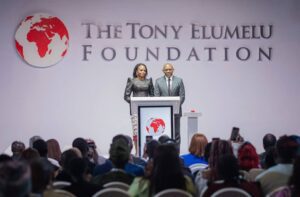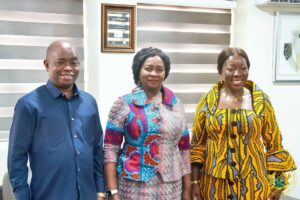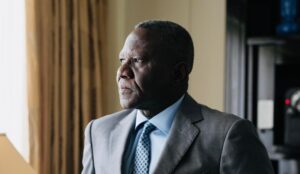
Source: Ghanaija
In the bustling streets of Lagos, where the echoes of honking cars and the aroma of street food intertwine, Bisi Adeyemi was not just an ordinary woman. She was a nurse, a mother, and a warrior in a battle against a silent epidemic creeping into her community. Lifestyle diseases, once associated with wealthier nations, were now becoming a significant health concern across Africa. The people of Lagos, like many others across the continent, were facing an alarming rise in diabetes, hypertension, and obesity. Bisi had witnessed firsthand the toll these diseases took on her community and was determined to find solutions.
Bisi’s journey began when her father, Chief Adeyemi, a respected elder in their village in Ogun State, was diagnosed with type 2 diabetes. The Chief, known for his love of traditional yam dishes and palm wine, had always been robust and healthy. However, his lifestyle choices had caught up with him. The diagnosis was a wake-up call for Bisi, who realized that the foods and habits once considered part of their culture were now contributing to a health crisis.
Determined to prevent others from suffering the same fate as her father, Bisi started a community health initiative called “Health for All.” Her goal was to educate her neighbors about the dangers of lifestyle diseases and promote healthier living. Bisi knew that change would be challenging, especially in a city like Lagos, where time and convenience often dictated food choices.
Bisi’s first step was to engage the local women, who were the primary caregivers and decision-makers in most households. She organized a meeting at the community center, inviting women from all walks of life. Among them was Amina, a market vendor from the northern region of Kano, who had moved to Lagos with her family in search of better opportunities. Amina, like many others, was skeptical of Bisi’s message at first. She had grown up eating traditional meals that were rich in carbohydrates and fats and didn’t see why she needed to change her diet.
Bisi began by explaining the link between lifestyle diseases and diet. She shared stories of people who had suffered from heart attacks or strokes due to poor eating habits. She didn’t preach; instead, she listened to their concerns and addressed them with empathy. She knew that changing deeply rooted cultural practices required patience and understanding.
One of the most significant challenges Bisi faced was the lack of access to healthy food options. In many parts of Lagos, fresh fruits and vegetables were expensive, and fast food was more affordable and convenient. To tackle this issue, Bisi partnered with local farmers from nearby Ogun State to supply fresh produce to the community at a lower cost. She also worked with local chefs to create healthier versions of traditional dishes, showing that it was possible to enjoy cultural foods while making better choices for health.
As the weeks passed, Bisi’s efforts began to bear fruit. Amina, once resistant to change, started incorporating more vegetables into her family’s meals. She noticed that her children had more energy and were falling ill less often. The community health initiative grew, with more women joining and spreading the word to their neighbors. Bisi’s message was clear: preventing lifestyle diseases was not about giving up culture but about embracing a healthier way of living.
While Bisi’s work in Lagos was gaining momentum, across the continent in Accra, Ghana, Dr. Kwame Mensah was fighting a similar battle. A cardiologist at a leading hospital, Dr. Mensah had seen an increase in patients suffering from heart disease at an alarming rate. Many of his patients were young professionals who had adopted sedentary lifestyles, working long hours in offices and relying on fast food for meals.
Dr. Mensah believed that technology could play a crucial role in combating lifestyle diseases. He developed a mobile app called “HeartWise,” designed to educate users about the risks of heart disease and provide personalized tips for healthier living. The app included features such as a diet tracker, exercise plans, and reminders for medical check-ups. It also allowed users to connect with healthcare professionals for virtual consultations.
The launch of “HeartWise” was met with enthusiasm, particularly among the younger generation in Accra. Dr. Mensah understood that reaching this demographic was vital, as they were the ones most at risk of developing lifestyle diseases due to their modern, fast-paced lifestyles. The app became a valuable tool in promoting awareness and encouraging preventive measures.
One of the app’s success stories was Kojo, a young entrepreneur who had been neglecting his health due to the demands of his business. After downloading “HeartWise,” Kojo became more conscious of his diet and started incorporating regular exercise into his routine. The app’s reminders helped him stay on track, and within months, Kojo saw a significant improvement in his health. He even began encouraging his employees to use the app, creating a ripple effect of health consciousness within his company.
Meanwhile, in Nairobi, Kenya, another solution was taking shape. Dr. Aisha Njoroge, a public health expert, recognized that while individual efforts were essential, systemic change was also necessary to prevent lifestyle diseases on a larger scale. She began advocating for policy changes that would promote healthier living at the national level.
Dr. Njoroge’s focus was on creating environments that supported healthy choices. She lobbied for the implementation of sugar taxes on sugary drinks and junk food, similar to those introduced in some Western countries. She also worked with city planners to design more walkable urban spaces, encouraging physical activity among residents.
One of Dr. Njoroge’s most significant achievements was her role in establishing a national school nutrition program. The program provided healthier meals in schools, ensuring that children received balanced diets from a young age. This initiative not only addressed immediate health concerns but also laid the foundation for a healthier future generation.
As these efforts across different African regions unfolded, it became clear that preventing lifestyle diseases required a multi-faceted approach. In Lagos, Bisi’s community health initiative empowered individuals to take control of their health. In Accra, Dr. Mensah’s “HeartWise” app harnessed the power of technology to reach a broader audience. In Nairobi, Dr. Njoroge’s policy work created systemic changes that supported healthier lifestyles on a national scale.
The fight against lifestyle diseases in Africa was far from over, but these stories of resilience, innovation, and collaboration offered hope. By embracing both traditional wisdom and modern solutions, African communities were finding ways to protect their health and build a healthier future for generations to come. The journey was challenging, but as Bisi often reminded her community, “Health is wealth, and together, we can make a difference.”








